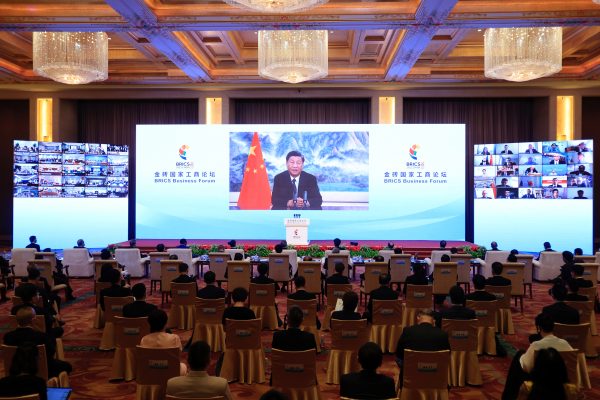The NDB aims to ‘mobilise resources for infrastructure and sustainable development projects in BRICS countries and other emerging economies and developing countries’. The bank has partnerships with fellow multilateral development banks such as the World Bank, the African Development Bank and key national and global institutions including the China Construction Bank and the Food and Agriculture Organization of the United Nations. Since its foundation, the NDB has signed 35 Memorandums of Understanding with various institutions, such as national development banks, enterprises and academia.
As of 2015, the NDB has approved 84 projects in transport, urban development, public health, information and communication technology, water resource management and sustainable infrastructure. So far, all projects are in BRICS countries. But given the NDB’s expanded membership and the investment and financing gaps of developing countries to fund infrastructure development, the bank will likely expand its funding operations beyond the BRICS.
In theory, membership is open to any country beyond the five founders. But in practice, there are specific acceptance criteria countries must possess. In an unpublished interview, an NDB vice president explained the three criteria of the NDB Task Force on membership expansion. This includes a legitimate need to finance sustainable infrastructure projects, a firm commitment to multilateralism in parallel with a sound sovereign credit risk rating and a disentangled political alignment that will not antagonise any NDB member.
The main factors that prompted the NDB to welcome Egypt as a new member are less obvious. According to a 2018 World Bank Group report, Egypt faces a significant infrastructure financing gap over the next 20 years with a US$230 billion investment gap overall. This, alongside Egypt’s need to modernise, caused a scrambled competition between Western countries, China and Russia.
Egypt does not share geographic borders with any BRICS country. But it enjoys good political and economic relations with both China and Russia.
In 2018, Russian President Vladimir Putin and Egyptian President Abdel Fattah el-Sisi signed a Comprehensive Partnership and Strategic Cooperation treaty. El-Sisi defined it as a new chapter in the history of Egypt–Russia cooperation. In September 2022, Putin declared Egypt as one of Russia’s most important partners in Africa and the Arab world. As geopolitical tensions rise between the West and Russia, Moscow’s interests in the Global South — such as increasing the number of countries not opposing Russia’s violation of Ukraine’s sovereignty — cannot be underestimated.
China and Egypt are also strategic partners and have stepped up their economic cooperation. China is Egypt’s top commercial partner and Egypt is the largest recipient of China’s foreign direct investment in Africa. Egypt is also the first Middle Eastern nation to get financial assistance from the Asian Infrastructure Investment Bank, a China-led multilateral development bank. Beijing is even building a new Egyptian capital as part of a US$3 billion investment under the Belt and Road Initiative.
There are growing concerns about the extent that the BRICS as a group can frame discourses about international development and global governance. The XIV BRICS Summit Beijing Declaration published in June 2022 reiterated the group’s commitment to multilateralism through international law and the intent to advance sustainable development. Yet the Declaration also signals the BRICS countries’ intention to expand their global outreach. It does so by referring to the BRICS Outreach/BRICS+ approach, a framework created for ‘greater interaction and partnerships among countries of the Global South to shape the agenda to effect changes in the global economy’.
The NDB’s mission is framed as bridging gaps between the needs and funding of developing and low-income countries. Yet its limited involvement with global governance measures that deal with unsustainable debt — such as the Common Framework endorsed in November 2022 by the G20 with the Paris Club — raises questions about the NDB’s real commitment to debt resolution.
The approach of the BRICS to global governance and international development also seems very much in line with China’s narrative and interests. For China, the BRICS as a group represents an opportunity to advance its vision of global governance reform. It was China that proposed the BRICS+ cooperation model, envisioned as a way ‘to better reflect the legitimate concerns and reasonable demands of most countries, especially developing countries’.
The Asian Infrastructure Investment Bank is considered China’s most ambitious project for altering the status quo of the liberal international order. But it is the NDB’s expanded membership that demonstrates confidence in China’s potential to advance its leadership role vis-a-vis global governance reform. The BRICS common agenda on engaging with countries in the Global South may also represent the linchpin of this strategy.
China’s quest for the Global South in the years ahead is set to strengthen within a post-Western multilateral framework. It will strengthen the role of the BRICS in international development in terms of political, but also economic and financial cooperation — factors often underestimated by Western countries.
Silvia Menegazzi is Lecturer at Luiss Guido Carli University where she teaches International Relations and Asian Studies.

